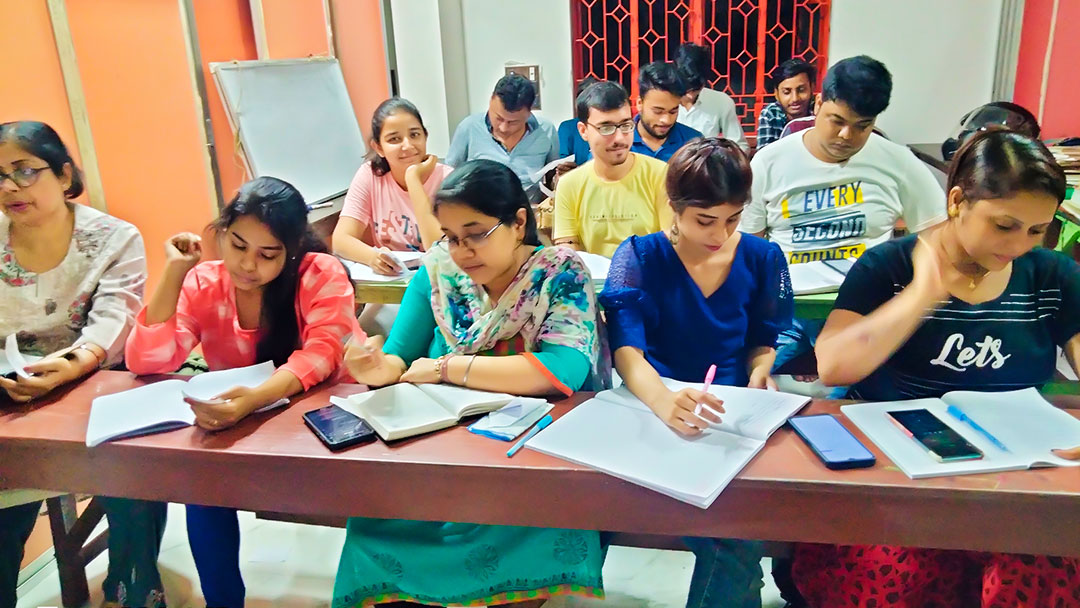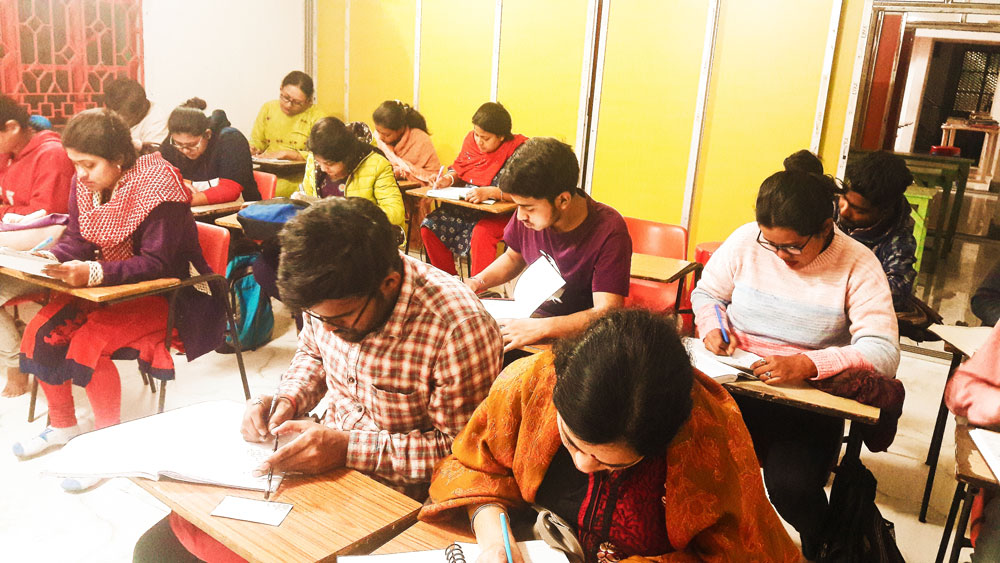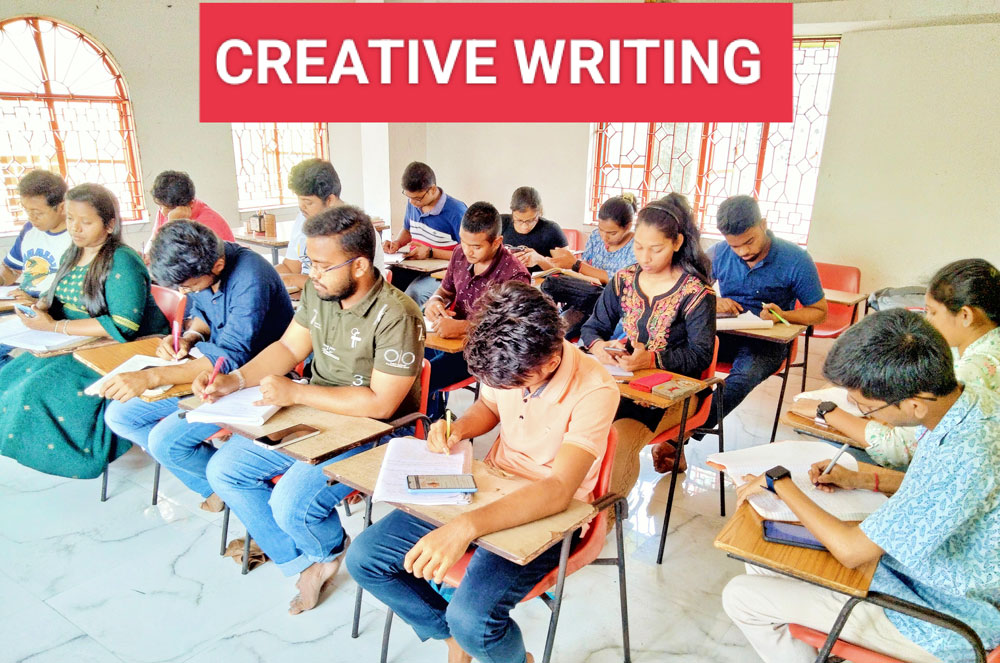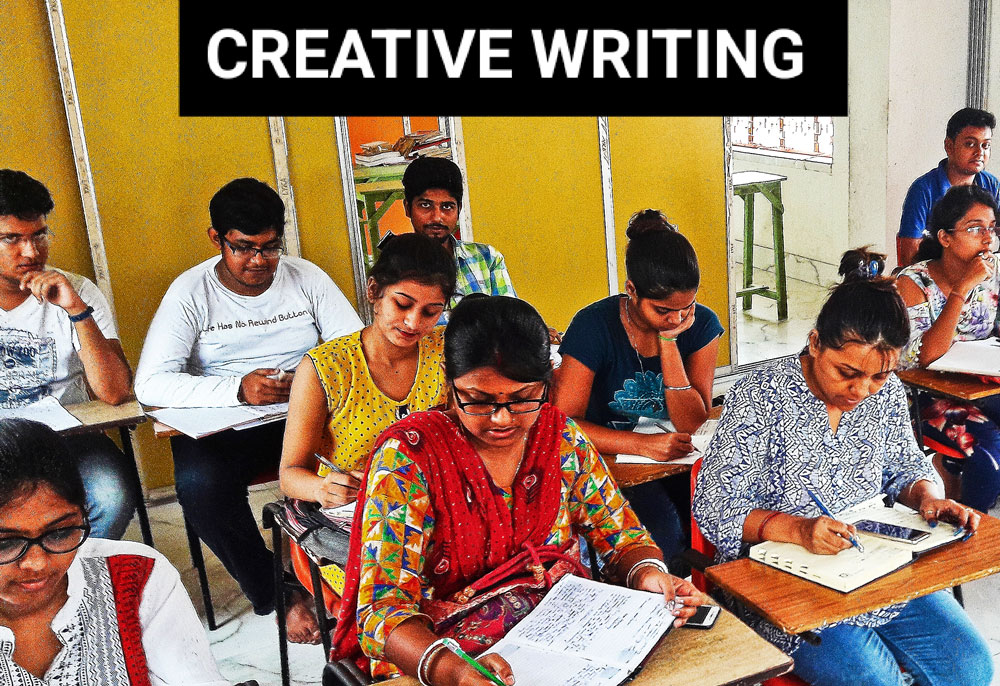Creative Writing

Course Details
What is the prospect of doing a Creative Writing course in the job market?
Diverse Opportunities: Creative writing skills are sought after in various industries including advertising, marketing, publishing, content creation, journalism, and entertainment.
Content Creation: With the proliferation of digital platforms, there is a high demand for engaging content, opening up opportunities for creative writers to excel in producing compelling narratives, blogs, social media posts, and website copy.
Brand Storytelling: Companies recognize the power of storytelling in connecting with their audience. Skilled creative writers can craft brand narratives that resonate with consumers, strengthening brand identity and driving sales.
Freelancing: The gig economy has created avenues for freelance writers to thrive. Creative writers can work on projects ranging from writing articles and scripts to developing content strategies for businesses, offering flexibility and autonomy.
SEO Writing: In the digital age, businesses rely heavily on search engine optimization (SEO) to enhance their online visibility. Creative writers who understand SEO principles can create content that not only captivates readers but also ranks well on search engines.
Scriptwriting: With the surge in streaming platforms and demand for original content, there is a growing need for talented scriptwriters in film, television, and online video production.
Technical Writing: Beyond creativity, technical writing requires clarity and precision. Creative writers with a knack for simplifying complex information can excel in technical writing roles, producing user manuals, instructional guides, and software documentation.
Educational Content: Creative writers can contribute to the education sector by developing engaging curriculum materials, textbooks, and educational videos, catering to diverse learning styles and enhancing student engagement.
Storytelling in UX/UI Design: User experience (UX) and user interface (UI) design rely on storytelling to guide users through digital experiences. Creative writers can collaborate with designers to craft compelling narratives that enhance usability and user satisfaction.
Adaptability: In a rapidly evolving job market, creative writers possess adaptable skills that can transcend industries and job roles, making them valuable assets in any organization’s creative arsenal.
What will you learn in the Creative Writing course?
In creative writing, you’ll learn various skills and techniques to express your thoughts and ideas effectively through written words. Here are some key things you can expect to learn:
Understanding the Basics: You’ll learn the fundamentals of writing, including grammar, punctuation, and sentence structure.
Developing Creativity: Creative writing encourages you to think outside the box and develop your imagination. You’ll explore ways to generate unique ideas and narratives.
Exploring Different Genres: You’ll have the opportunity to experiment with different genres such as fiction, poetry, non-fiction, and drama, discovering which ones resonate with you the most.
Crafting Characters: You’ll learn how to create compelling characters with depth, personality, and motivations that drive your stories forward.
Building Settings: You’ll discover techniques for building immersive settings that captivate readers and enhance your storytelling.
Constructing Plots: You’ll study the art of crafting engaging plots with tension, conflict, and resolution, keeping readers hooked from beginning to end.
Revising and Editing: You’ll develop skills in revising and editing your work, refining your writing to make it polished and professional.
Receiving Feedback: Creative writing often involves workshops or peer critiques where you’ll receive constructive feedback on your writing and learn how to give feedback to others.
Overall, creative writing is about honing your craft, finding your voice, and expressing yourself authentically through the written word.
- Total Successful Students







